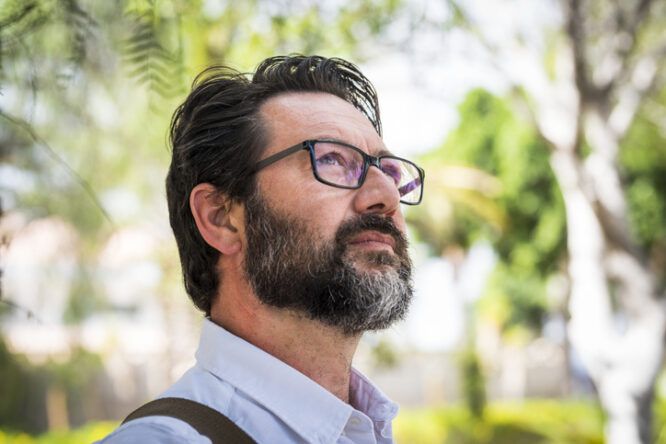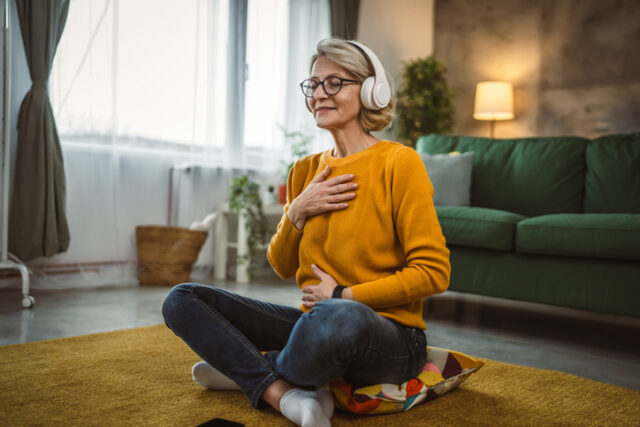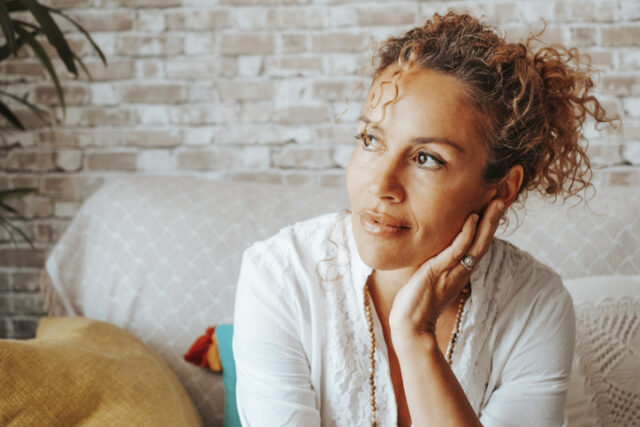Being an introvert can sometimes feel like you’re not wired for the fast pace of today’s world.

In some ways, maybe that’s true—but that’s not necessarily a bad thing. When it comes to growing older, introverts might just have the upper hand, as Psychology Today notes. All that quiet time, deep reflection, and low-stimulation living? Turns out, it’s pretty good for long-term health and well-being.
As the years roll on, what once made introverts feel “different” starts looking like emotional intelligence, stability, and resilience. So, if you’ve ever felt a bit out of place for needing space, consider this a celebration of the quieter path. Here’s why introverts may actually age better than most.
1. They’re naturally good at being alone.

Introverts aren’t afraid of solitude—they thrive in it. While other people might struggle with being on their own or constantly need company to feel okay, introverts already know how to enjoy their own space without feeling lonely or restless. That makes the later stages of life easier to navigate, especially when things slow down or social circles change. They don’t rely on external noise to feel content, and that internal calm becomes a real strength with age.
2. They build deep, lasting friendships.

Introverts tend to have fewer friendships, but the ones they do have are solid. They value quality over quantity, and their connections are usually rooted in trust, loyalty, and mutual understanding. It makes ageing feel less isolating because they’re not chasing constant social activity; they’re maintaining a tight circle that’s been steady for years. When life gets quieter, they still have the kind of support that truly matters.
3. They’re less likely to burn out from constant stimulation.

Introverts don’t chase high-energy environments or feel the need to be “on” all the time. That means their nervous systems aren’t constantly being flooded with noise, pressure, or chaos, and that adds up over time. Less stress equals better long-term health, especially when it comes to mental wellbeing. That slower, more measured approach to life becomes a real advantage as the years go on.
4. They value rest and actually take it.

While the world praises hustle culture, introverts are usually more in tune with when they need to slow down. They don’t see rest as laziness; they see it as necessary for functioning well. As they age, this habit pays off. Prioritising downtime helps protect against burnout, exhaustion, and even illness. They’ve been practicing self-care long before it was a trend.
5. They’re naturally reflective.

Introverts tend to process life internally. They reflect, analyse, and make meaning out of experiences—something that often leads to a strong sense of identity and emotional resilience. That makes transitions like retirement, kids leaving home, or health shifts a little easier to digest. They’re used to working through change quietly and thoughtfully, rather than trying to escape it through distraction.
6. They’re not afraid to say no.

Introverts usually have strong boundaries around their time and energy. They’re not wired to people-please or overcommit, and they don’t feel bad about declining things that don’t serve them. As they get older, this translates into more peace and less regret. They’ve spent years protecting their mental space, and it becomes a powerful tool for ageing with intention rather than obligation.
7. They enjoy the small stuff more.

Introverts find joy in subtle, everyday experiences—a good cup of tea, a walk through nature, or reading a favourite book. They don’t need adrenaline or constant excitement to feel fulfilled. That means they’re less likely to chase external validation as they age. Their contentment comes from within, and that mindset makes it easier to enjoy life even when things slow down.
8. They age on their own terms.

Introverts don’t feel pressured to keep up with social trends, be at every party, or document every life update online. Their focus is more inward than outward, which often leads to a more authentic life overall. As they get older, they’re not chasing anyone else’s version of what life “should” look like. That kind of self-assured living can be a huge relief when the pressure to perform starts to fade away.
9. They’re used to navigating emotions solo.

Introverts usually process their feelings internally first, rather than needing to talk them out with other people immediately. That emotional self-reliance builds a strong internal compass over time. It helps them stay grounded during personal challenges, grief, or changes that come with ageing. They don’t fear introspection—in fact, they often find clarity through it.
10. They’re not scared of missing out.

While extroverts might wrestle with FOMO, introverts are pretty content doing their own thing. They don’t need to be everywhere to feel connected or validated, which saves them a lot of unnecessary stress and comparison. With age, this mindset becomes a superpower. Instead of chasing experiences just for the sake of it, they focus on what’s meaningful to them, and that’s often more sustainable and fulfilling.
11. They adapt well to quiet phases of life.

Retirement, empty nesting, or shifting social circles can feel jarring to someone who relies on constant social buzz. Of course, introverts are already wired to enjoy slower living and deeper solitude. They don’t see quiet as lonely; they see it as spacious. This ability to adapt to stillness helps them avoid the panic or identity loss that sometimes comes with life transitions.
12. They spend more time understanding themselves.

Because introverts often turn inward, they typically know themselves pretty well. They’ve spent years noticing their thoughts, observing their triggers, and learning what makes them tick. That level of self-awareness makes ageing feel less confusing. They know what they value, what brings them peace, and what they’re willing to let go of—things that make growing older feel like a refining process, not a crisis.
13. They’re less bothered by being misunderstood.

Many introverts grow up feeling slightly out of sync with louder or more socially driven environments. But with time, they get used to it—and even stop caring so much about what other people think. Their quiet confidence becomes incredibly freeing with age. They’re not looking for external approval or trying to fit in. They’ve already found their rhythm, and they’re perfectly fine sticking to it.
14. They’ve mastered the art of low-maintenance happiness.

Introverts don’t need a lot to be content. A peaceful environment, a hobby they love, meaningful conversations—they’re not chasing the next big thing to feel satisfied. That simplicity is often what keeps them steady and happy over the years. They’ve created a life that doesn’t need constant stimulation, and that kind of calm joy is something a lot of people spend decades trying to find.




